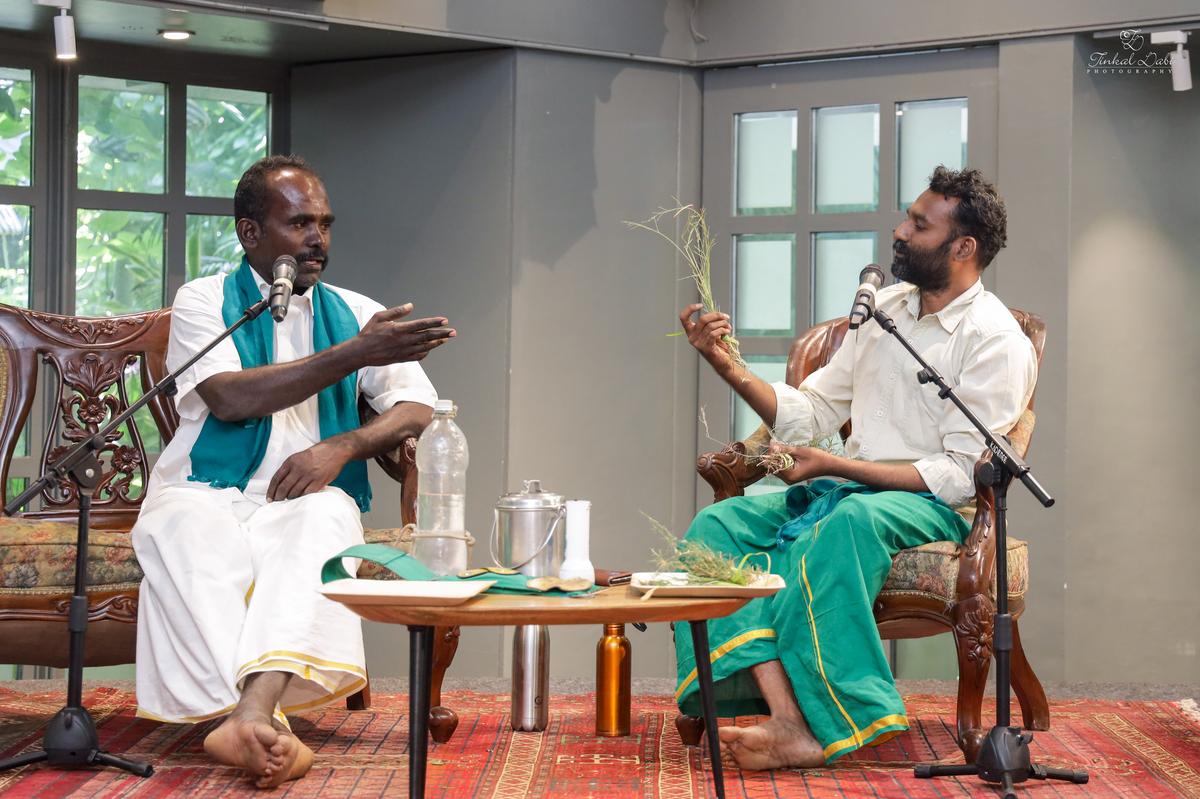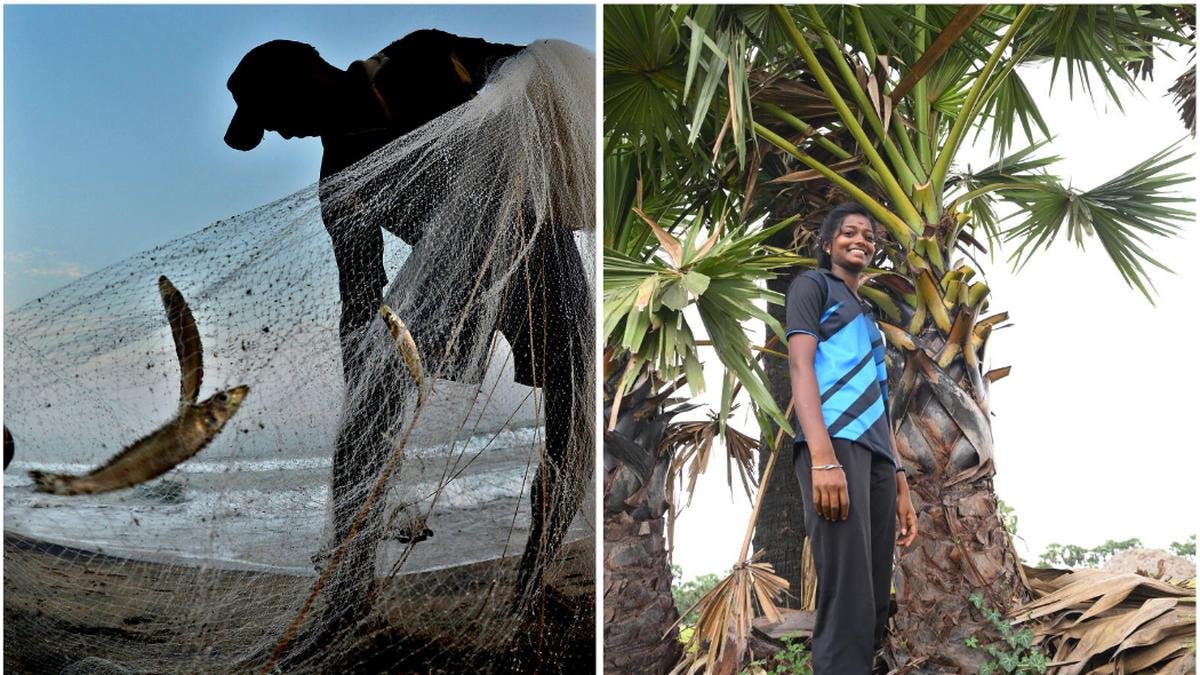
Fishing out an anchovy from the nets; Harris Karishma, a palm tree climber and speaker
| Photo Credit: Special Arrangement
The karuvattu kozhambu, now being served as an amuse bouche on gourmet menus, is made of the poor man’s humble anchovy. The process of curing this tiny, oily, silver fish, involves days of cleaning, gutting, salting and drying. Conditions must be ideal for the fish to be caught in bulk. Much of the fresh fish must be sold at markets by fisherwomen. They must then part-take in the labour-intensive process of drying the anchovy on the coast by the beach until the saline stink wards off and a wonderfully crisp dried fish remains.

“For the amount of work put into drying an anchovy, the fisherfolk barely get their due. But it is a fascinating process of understanding the use of fishing land — the sand and the sea — both common lands. Both porombokku nelams [empty lands],” says K Saravanan, fisher rights activist. Much of this knowledge is hardly accessed by members of the upper echelons of society although it is essential. Especially since it documents the way of life of a large, essential community from Chennai. That is why Porombokkiyal, part of the Chennai Kalai Theru Vizha, is back with for its third edition. Here, over five panels, speakers from realms often not platformed in academic venues, will take part in a lecture series that documents their work.

In this edition of the festival, expect to catch a conversation on palm tree climbing and toddy tapping by D Pandian and his daughter Harris Karishma, both toddy tappers from Villupuram; S Saratha and V Thangamani, fisherwomen from Urur Olcott Kuppam chatting with K Saravanan on the making of the karuvaadu; Kannamal Soriayan and Pappal Jikkan, members of the Irula community speaking to Uma Maheshwari, an educationist, on their connection with divine rituals; and mridangam maker Antony Sowriyar talking to singer and a volunteer of the festival TM Krishna, on what goes behind creating the instrument. This will be followed by a play titled Oru Oorula Oru Aaru by children from the Arunodhaya Centre.
Krishna, who began the first edition of the event back in 2019, says that the intention was simple. The idea was to ask what it took to create an ecologically and socially conscious city. This began with a need to understand its people better. Civic and cultural conversations hence became essential. “We don’t have a place where people with different kinds of knowledge can speak or share their insights. There’s a certain amount of appropriation of that knowledge from the people in academia who use the voices of people from the community as a second voice. How do we change that? In academic spaces, we flip the roles. Those who are second voices are now your lecturers,” says Krishna.
He adds that although it was unintentional, this year, the team seems to have touched upon on poromboke or common spaces in all the five Sangam Tamil landscapes — Kurinji (mountains), Mullai (forests), Marutham (agricultural lands), Neithal (coastal regions), and Palai (desert or arid lands).
The event promises a full day of riveting conversation on occupation and its dynamic socio-economic-cultural and environmental layers. “This is one of the events under the Chennai Kalai Theru Vizha ambit but we are looking to continue hosting several events including the Urur Olcott Kuppam Vizha,” the curator says.
On September 28 at The Learning Community at Quest from 10.15am. Write to chennaikalaitheruvizha@gmail.com. Entry is free.
Published – September 25, 2025 12:54 pm IST
